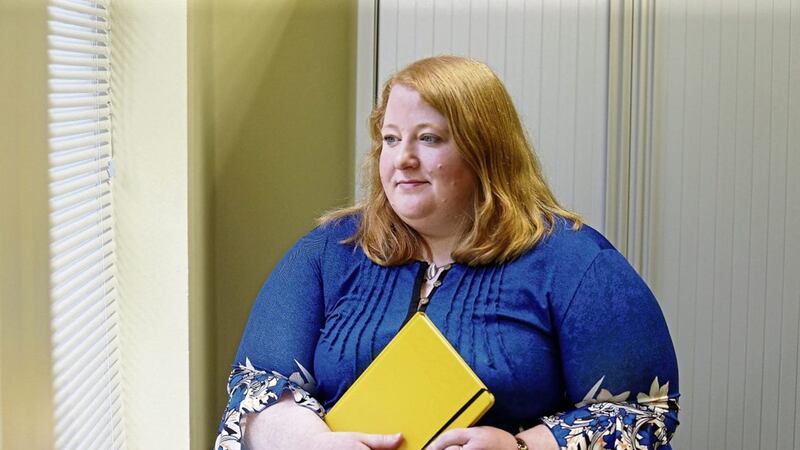What is the presumed mechanism, beyond nationalist wishful thinking, by which electoral disaster for the DUP means disaster for the union?
Has it not been the consensus for years that DUP leadership is bad for the union?
If the party now splits its voters between Alliance and the TUV and knocks itself into third place at Stormont, should that not in theory be good for the union?
If this is my own wishful thinking, it is widely enough shared. DUP supporters jumping straight past the UUP to Alliance, a phenomenon sustained over three years of elections and opinion polls, are not ceasing to be unionists, at least as far as polling can tell.
They are giving up on unionist parties, yet they have the confidence to hope for better politics within the union. Although there may also be an element of desperation in their move, the truly desperate are those switching to the TUV.
The UUP is being bypassed because it is seen as a lost cause. With nothing to lose, it might finally step out of the DUP’s shadow: it proposed the gay conversion therapy ban that drove the last wedge between Arlene Foster and her party.
A collapse in DUP support after a calamitous performance in office should be seen first and foremost as a healthy outcome from our political system, rather than a threat to the system, to stability or to Northern Ireland itself.
Admittedly, hopes or fears of dramatic change could be overstated. Jeffrey Donaldson is not a strong enough figure within the DUP to modernise it, while Edwin Poots is too canny a politician to destroy it. Either man could keep the party lingering on, unreformed and still large enough to obstruct change.
However, the polling numbers are already extraordinary - hence the panicked defenestration of Arlene Foster.
Analysis by statistician Peter Donaghy of February’s LucidTalk poll gives an assembly result of Sinn Féin in first place on 24 seats, Alliance second on 18 and the DUP third on 16.
It is easy to see Poots making this worse for the DUP and hard to see Donaldson making it better - he could lose more votes to the TUV, even if he does not hand as many to Alliance.
A DUP in second place, let alone third, transforms Northern Ireland politics. People from a unionist background are choosing this with their eyes open, ignoring the old warnings of a Sinn Féin first minister or a border poll. The positive aspect to this must be acknowledged. Voters are looking past fearful solidarity to seek democratic change.
One early consequence is that the DUP can no longer pretend it will not work ‘under’ a Sinn Féin first minister. It would not be credible to fight the next election while hinting there will be no Stormont if unionism is not in charge. That may never have been a serious threat and of course there is no real difference between the top two parties but having to confront it will humble the DUP and change unionist politics.
Given the consistent electoral demand for devolution, it seems certain the vast majority of unionist voters would take a dim view of a party that abandoned the executive because it was in second place. However, the DUP is very unlikely to walk away from power. The more interesting question is how people would feel about the DUP coming third but still taking the deputy first minister’s post.
This would happen under Donaghy’s numbers because the DUP would be the largest party of the second-largest designation.
Alliance voters would not be alone in finding this perverse and pressure for reform would grow.
Removing community designation and mandatory coalition have been long-standing unionist demands, in order to create ‘normal politics’ for Northern Ireland.
The DUP always imagined this would involve everyone else excluding Sinn Féin.
If it ends up being about excluding the DUP, is the unionist case for reform not still served?
Sinn Féin as the largest party and nationalism as the largest designation would increase demands for a border poll.
Having the DUP leading unionism during a poll campaign is the disaster many unionists fear.
But if the assembly numbers used to call for a poll are due to the DUP falling apart, then the argument for a poll is flawed. Voters may take a dim view of this as well - it would be a transparent attempt to exploit the growth of the centre ground to turn up the political temperature.









